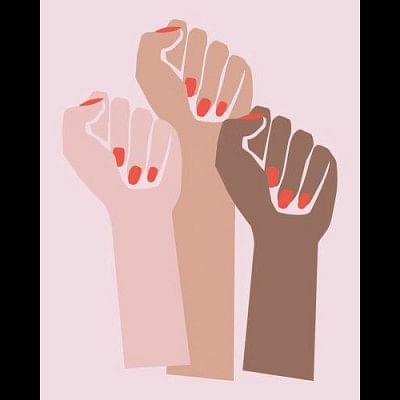Yes, #MeToo

"Me too," such easy words, and yet, it took so much courage to post them on social media.
As an avid social media user, I have posted thousands of status updates, ranging from complaints about mom's food to sophisticated words about issues I care about. In most cases, I don't think twice before posting something; and I am pretty vocal about social issues. But I thought of a thousand things before I wrote #MeToo in support of a campaign to raise awareness about sexual harassment.
Why was it that hard though?
Before I could write those words, I thought about whether I had ever been sexually assaulted. I wondered if being touched inappropriately while on public transport qualified as sexual harassment. I thought about how I cringed as a child when some distant male relative would try to get too close to me.
I wondered, if I post this, will people think that I have been raped? I thought about what my family members and friends would think, and most of all, I thought about how it would reflect on me as a girl. Is it alright for an unmarried 20-plus woman to claim something like this?
It is always hard to admit that I too have been a victim. Being raised by a strong-willed mother, I was always taught to protest and be vocal about these issues. Most times, I made sure to retaliate when harassed on public transport. But that never changed how that physical contact that lasted a fraction of a second made me feel for the rest of the week—sometimes coming back to haunt me.
But it was harder to admit it because of the culture of victim-shaming that surrounds issues like rape and sexual harassment in our society. Whenever a girl or woman is harassed, questions like "What was she wearing?" eventually arise. Sexually assaulting women who step out of the house is seen as somewhat of a "right" of men. As if it's their sacred duty to put these women back in their "rightful place".
But is it only women who suffer? Many young boys and men often fall victim to sexual harassment and do not know what to do about it. Like women, it is hard for men to come out as victims. After all, the same societal norms prohibit a man from showing any sign of weakness. They are thus left alone to suffer.
As I was dwelling on my thoughts about whether or not to post the words #MeToo, my social media timeline kept updating itself. A senior who always got teased for looking too young for her age, her too. One of my respected teachers, her too. A cousin of mine, her too. My aunt living in a different country. She too had been harassed. The range of emotions that I felt at that moment is indescribable. These are women from all backgrounds and places. And yet, what united them is that they had the courage to admit that sexual harassment/assault can happen to anyone and it is not the shame of the victim.
As part of the #MeToo campaign, social media users have been using the hashtag to show that they have been sexually harassed or assaulted. It is only after the campaign started that I realised the gross extent of sexual harassment in our society. Most of us would choose not to talk about it, as we are taught that being a victim is something to be ashamed of. I also realised that in most conversations I have had with other women on the issue, people tend to give examples of others rather than talking about themselves. Yes, our society has taught us well—that it is for the victim to feel the shame.
Looking at all these brave women who wrote those words, I gathered the courage to post them myself. As I pressed the "post" button, a heavy burden was lifted from my shoulder—I felt lighter.
Of course, there's the debate about the effectiveness of social media campaigns and how much change they can actually translate into in real life. Will my admission stop a harasser? Will girls feel a little safer in public transports or roads? No, posting a social media status does not dramatically change the realities. But in this case, it is important because of the impact it has on changing the culture of victim-blaming. This hashtag shows that sexual harassment victims are not people outside of the society—they can be any one of us. You don't have to "imagine" the victim as your "ma/bon". It is literally our mothers, sisters and friends who are harassed, sometimes on a regular basis.
Identifying a problem is always the first step towards solving it, and this is why I think this campaign against sexual harassment will go a long way in starting a much-needed conversation. I hope many other victims will find the courage to come forward, because they should know that they are not alone in this. We are in this together. And when we come together, our actions can change society for the better.
Lam-ya Mostaque is a researcher working on social issues.
Email: [email protected]





Comments